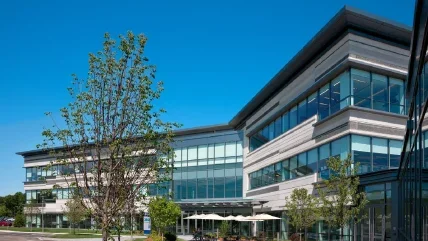
US-based biomedical engineering firm Boston Scientific has signed a definitive agreement to acquire medical equipment manufacturer Silk Road Medical for a total of up to $1.16bn.
Under the terms of the agreement, the shareholders of Silk Road Medical will receive a purchase price is $27.50 per share.
The transaction is expected to be completed in the second half of 2024, subject to customary closing conditions.
Silk Road Medical developed a platform of products to prevent stroke in patients with carotid artery disease through the trans-carotid artery revascularisation (TCAR) procedure.
In the TCAR procedure, the carotid artery is accessed through a small incision in the neck to temporarily direct the blood flow away from the brain to prevent plaque from causing a stroke.
The procedure involves placing a stent at the site of the blockage to ensure long-term plaque stabilisation and future stroke prevention.
In 2015, the US Food and Drug Administration (FDA) approved the TCAR system.
Boston Scientific vascular, peripheral interventions president Cat Jennings said: “The TCAR platform developed by Silk Road Medical is a notable advancement in the field of vascular medicine, which has revolutionized stroke prevention and the treatment of carotid artery disease.
“We believe the addition of this clinically differentiated technology to our vascular portfolio demonstrates our continued commitment to provide meaningful innovation for physicians who care for patients with peripheral vascular disease.”
In a separate development, Boston Scientific has unveiled positive six-month results from the ongoing MODULAR ATP clinical trial of the mCRM System.
mCRM is the first modular cardiac rhythm management (CRM) system that comprises the Emblem subcutaneous implantable defibrillator (S-ICD) System and the Empower leadless pacemaker (LP).
The Emblem and Empower devices are designed to work together wirelessly to coordinate painless intracardiac anti-tachycardia pacing (ATP) therapy.
They provide rate-responsive bradycardia pacing support to prevent sudden cardiac death without the risk of leads in the heart or under the sternum.
Amsterdam UMC Department of Cardiology and Electrophysiology professor Reinoud Knops said: “We saw excellent overall clinical performance of the mCRM System in this study, including a high rate of communication success from the S-ICD to the leadless pacemaker, and a low rate of major leadless pacemaker complications.
“These findings are noteworthy, as high percentages of communication success and pain-free termination of spontaneous arrhythmia episodes indicate a potential upgrade pathway for patients currently implanted with an S-ICD who develop a need for ATP or pacing.”






